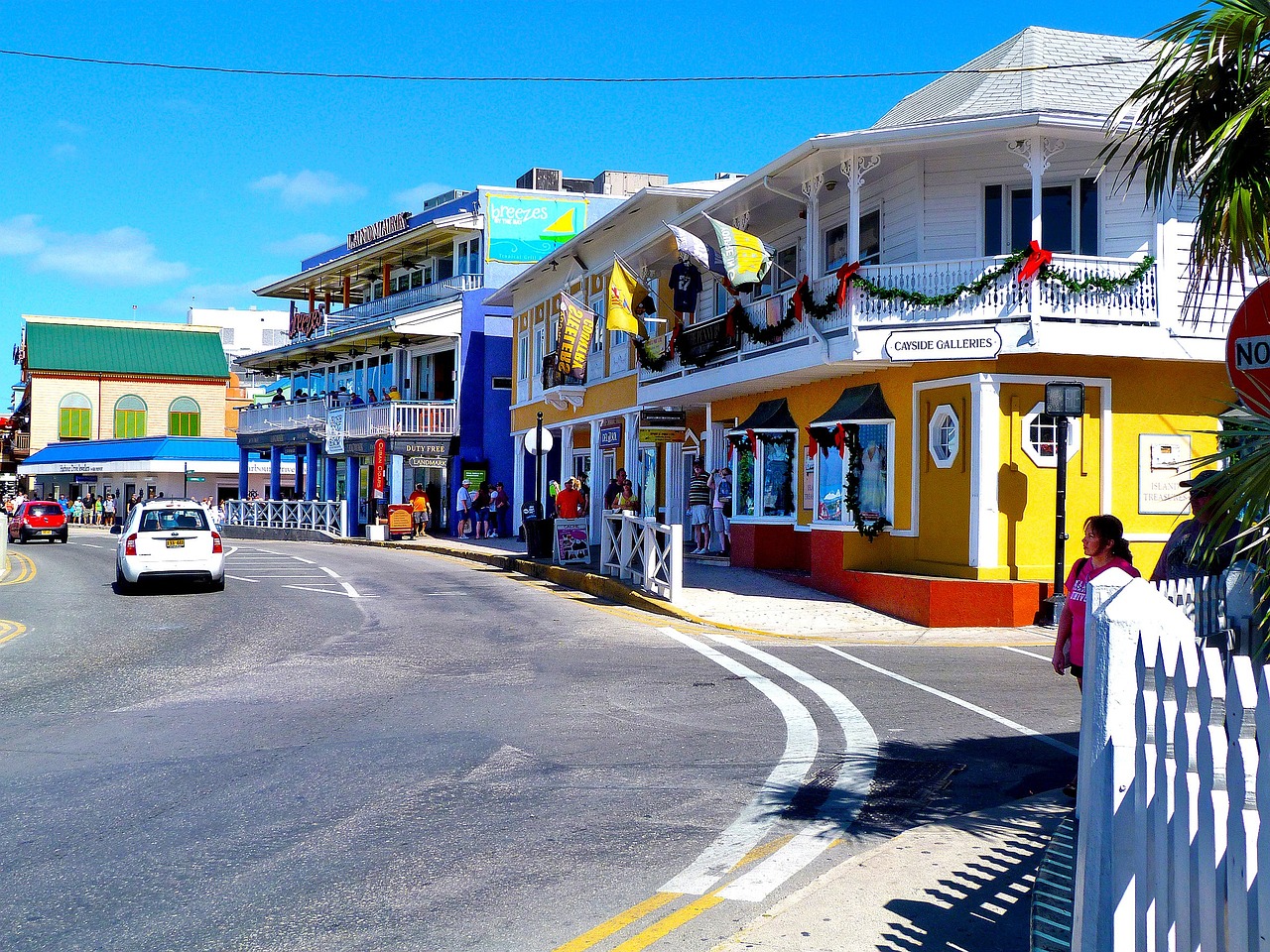Cayman Islands Video:
Language and Communication: Overcoming Barriers in Cayman Islands
Language and communication are crucial aspects of any society, enabling people to connect, understand, and collaborate effectively. In the Cayman Islands, a British Overseas Territory located in the Caribbean Sea, language plays a significant role in daily interactions. With a diverse population and a thriving tourism industry, it is important to overcome language barriers to ensure effective communication and inclusivity. This article explores the various factors that contribute to language barriers in the Cayman Islands and highlights strategies and resources available to overcome them.
Section 1: Multilingual Society
The Cayman Islands is a multicultural society, attracting individuals from various countries and backgrounds. As a result, the islands are home to a diverse range of languages spoken by residents and visitors alike. The most commonly spoken languages, in addition to English, include Spanish, Tagalog, and Portuguese. This linguistic diversity presents both opportunities and challenges for effective communication.
- Spanish: With a significant population of Spanish-speaking residents and visitors, Spanish is widely spoken in the Cayman Islands. It is common to encounter bilingual individuals who can communicate fluently in both English and Spanish, facilitating interactions with Spanish-speaking individuals.
- Tagalog: Tagalog, the national language of the Philippines, is also prevalent in the Cayman Islands due to the large Filipino community. Many Filipinos work in various sectors, such as healthcare and hospitality, and being able to communicate in Tagalog can enhance service delivery and customer satisfaction.
- Portuguese: Portuguese is spoken by a sizeable population of Brazilian residents in the Cayman Islands. Understanding and speaking Portuguese can foster better communication and cultural understanding with this community.
Section 2: Language Education and Training
To overcome language barriers, language education and training programs are essential. The Cayman Islands recognizes the importance of language skills and offers various resources to support language learning and development.
- Language Schools: Language schools in the Cayman Islands provide courses in English, Spanish, and other languages. These schools cater to both residents and visitors, offering classes ranging from basic language skills to advanced proficiency.
- Language Exchange Programs: Language exchange programs bring together individuals from different language backgrounds, allowing them to practice and improve their language skills through conversation and cultural exchange.
- Workplace Language Training: Many businesses and organizations provide language training programs for their employees to enhance communication and customer service skills. These programs often focus on specific languages relevant to the industry, such as Spanish for hospitality or Tagalog for healthcare.
Section 3: Translation and Interpretation Services
Translation and interpretation services play a vital role in bridging language barriers and ensuring effective communication in the Cayman Islands. These services are available in various settings, including healthcare, legal, and tourism sectors.
Cayman Islands Image 1:

- Healthcare: Hospitals and clinics often employ interpreters to assist patients who have limited English proficiency. These interpreters ensure accurate communication between healthcare providers and patients, enabling effective diagnosis and treatment.
- Legal Services: In legal settings, translation services are crucial to ensure that all parties involved understand legal documents and proceedings. Certified translators provide accurate translations, enabling fair and equitable access to justice.
- Tourism and Hospitality: The tourism industry heavily relies on effective communication with visitors from different countries. Hotels, restaurants, and tourist attractions often have multilingual staff or access to translation services to provide a seamless experience for international guests.
Section 4: Cultural Awareness and Sensitivity
In a multicultural society like the Cayman Islands, cultural awareness and sensitivity are essential for effective communication. Understanding and respecting cultural differences can help avoid miscommunication and foster inclusivity.
- Cultural Training: Cultural training programs educate individuals about the customs, traditions, and communication styles of different cultures represented in the Cayman Islands. This knowledge promotes cultural sensitivity and facilitates better interactions.
- Non-Verbal Communication: Non-verbal cues, such as body language and gestures, vary across cultures. Being aware of these differences can prevent misunderstandings and enhance cross-cultural communication.
- Respect for Language Diversity: Valuing and appreciating the diversity of languages spoken in the Cayman Islands promotes an inclusive environment where individuals feel respected and understood.
Section 5: Technology and Language Apps
In today’s digital age, technology plays a significant role in overcoming language barriers. Language learning apps and translation tools are readily accessible and can assist individuals in improving their language skills and facilitating communication.
- Language Learning Apps: Mobile applications like Duolingo, Rosetta Stone, and Babbel offer interactive language lessons that can be accessed anytime, anywhere. These apps provide a flexible and personalized approach to language learning.
- Translation Tools: Translation apps, such as Google Translate, enable real-time translation of text, voice, and images. They can be used to quickly communicate with individuals who speak different languages.
- Language Exchange Platforms: Online language exchange platforms connect language learners worldwide, allowing them to practice their language skills through virtual conversations and cultural exchange.
Section 6: Workplace Diversity and Inclusion
Promoting workplace diversity and inclusion is crucial for overcoming language barriers and creating a harmonious work environment. Employers can implement strategies to support employees from diverse language backgrounds.
Cayman Islands Image 2:

- Language Training Programs: Employers can offer language training programs to employees, enabling them to improve their language skills and communicate more effectively with colleagues and customers.
- Employee Resource Groups: Employee resource groups focused on language and cultural diversity can provide a platform for employees to share experiences, exchange knowledge, and promote inclusion within the workplace.
- Clear Communication Policies: Establishing clear communication policies that encourage inclusivity and respect for all languages spoken in the workplace can help create a supportive environment for employees.
Section 7: Community Language Events
Community language events provide opportunities for individuals to come together and celebrate the linguistic diversity of the Cayman Islands. These events foster understanding, appreciation, and inclusivity among residents and visitors.
- Language Festivals: Language festivals showcase the richness of different languages spoken in the Cayman Islands through cultural performances, music, food, and interactive language activities.
- Language Exchange Meetups: Language exchange meetups bring together individuals interested in practicing different languages. These informal gatherings provide a supportive environment for language learners to practice their skills.
- Cultural Workshops: Cultural workshops focusing on language and communication provide insights into various cultures represented in the Cayman Islands. Participants can learn basic greetings, expressions, and cultural norms.
Section 8: Accessible Information and Signage
Accessible information and signage in multiple languages are essential for tourists and residents who may have limited English proficiency. Providing clear and concise information in different languages enhances communication and ensures everyone can navigate the Cayman Islands effectively.
- Multi-Language Signage: Tourist attractions, public facilities, and transportation hubs can display signage in multiple languages to assist visitors and residents.
- Language-Specific Information: Providing brochures, maps, and guides in various languages enables individuals to access important information about local attractions, services, and emergency contacts.
- Online Language Resources: Maintaining a comprehensive website with language options allows individuals to access information about the Cayman Islands in their preferred language.
Section 9: Language Support in Education
In educational settings, language support programs play a vital role in ensuring that students from diverse language backgrounds can fully participate and excel in their studies.
Cayman Islands Image 3:

- English as a Second Language (ESL) Programs: Schools provide ESL programs to support students who are learning English as an additional language. These programs focus on developing language skills and academic proficiency.
- Bilingual Education: Bilingual education programs allow students to learn core subjects in their native language while gradually transitioning to English. This approach enables students to maintain their cultural identity while acquiring English proficiency.
- Language Support Specialists: Language support specialists work closely with students, teachers, and parents to provide individualized language support, ensuring students can fully participate in classroom activities.
Section 10: Interpreting Services in Government
To ensure access to government services for all residents, interpreting services are available to assist individuals who have limited English proficiency.
- Government Hotline: The government hotline provides language support through interpreters, assisting individuals in accessing information, making appointments, and addressing concerns.
- Government Service Centers: Government service centers have interpreters available to facilitate communication between government officials and individuals who require assistance in languages other than English.
- Language Access Policies: Government agencies have implemented language access policies to ensure individuals can fully participate in government programs and services, regardless of their language proficiency.
Section 11: Overcoming Barriers in Healthcare
Effective communication in healthcare settings is essential for accurate diagnosis, treatment, and patient satisfaction. Overcoming language barriers in healthcare ensures that all individuals can access quality healthcare services.
- Medical Interpreter Services: Hospitals and clinics employ medical interpreters who are trained to facilitate communication between healthcare providers and patients who have limited English proficiency.
- Translation of Medical Documents: Translating medical documents, such as consent forms and discharge instructions, allows patients to fully understand their healthcare rights and follow-up care requirements.
- Cultural Sensitivity Training: Healthcare professionals receive cultural sensitivity training to better understand and meet the needs of patients from diverse language and cultural backgrounds.
Section 12: Conclusion
Overcoming language barriers in the Cayman Islands is crucial for fostering inclusivity, effective communication, and cultural understanding. Through language education, translation services, cultural awareness, technology, and supportive policies, the Cayman Islands can create an environment where language diversity is celebrated, and effective communication is accessible to all.
References:
– caymanresident.com
– caymanislands.co.uk
– caymancompass.com
– caymanairways.com
– caymannewresident.com


